Agriculture
EU Farmers Rise Against the Climate Cult
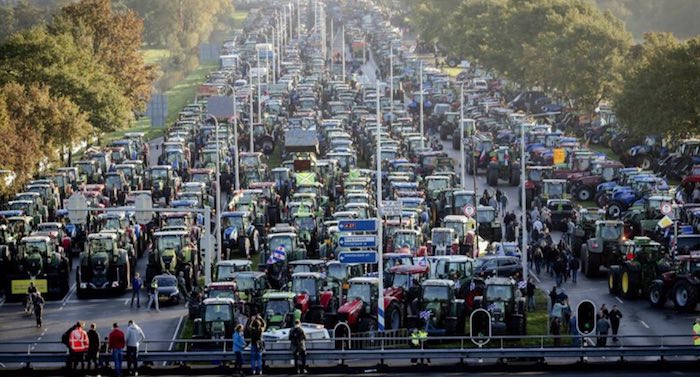
From the Brownstone Institute
BY
The EU Commission is playing a dangerous game. On the one hand, they are attempting to placate farmers by making expedient short-term concessions to them. On the other hand, they are holding fast to their commitment to cut greenhouse gas emissions in Europe by 90% by 2040
Many major arteries connecting Europe have been obstructed or brought to a standstill in recent days by a wave of protests by farmers against what they claim are overly burdensome environmental targets and unsustainable levels of bureaucracy associated with EU and national farming regulations.
The warning shots of this showdown between policymakers and farmers had already been fired on 1st October 2019, when more than 2,000 Dutch tractors caused traffic mayhem in the Netherlands in response to an announcement that livestock farms would have to be bought out and shut down to reduce nitrogen emissions. Early last year, Polish farmers blocked the border with the Ukraine demanding the re-imposition of tariffs on Ukrainian grain.
But it was not until early this year that an EU-wide protest was ignited. German and French protests and tractor blockades made international news, and the blockades were soon replicated in Spain, Portugal, Belgium, Greece, Netherlands, and Ireland. Major highways and ports were blocked and manure was poured over government buildings, as farmers across Europe expressed their frustration at rising farming costs, falling prices for their produce, and crippling environmental regulations that made their products uncompetitive in the global market.
It seems the farmers have European elites rattled, which is hardly surprising, given that EU elections are just around the corner. While the European Commission announced Tuesday it was still committed to achieving a 90% reduction of greenhouse gas emissions in Europe by 2040, it conspicuously omitted any mention of how the farming sector would contribute to that ambitious target. Even more tellingly, the Commission has backed down or fudged on key climate commitments, at least temporarily.
According to politico, EU Commission President Ursula von der Leyen announced on Tuesday that “she was withdrawing an EU effort to rein in pesticide use.” The climbdown on this and other Commission proposals relating to farming was rather embarrassing for the Commission but politically inevitable, given that the protests were spreading rapidly and farmers were showing no signs of going home until their demands were met. As reported by politico,
A note on the possibility of agriculture cutting down on methane and nitrous oxides by 30 percent, which was in earlier drafts of the Commission’s 2040 proposal, was gone by the time it came out on Tuesday. Similarly excised were missives on behavioral change — possibly including eating less meat or dairy — and cutting subsidies for fossil fuels, many of which go to farmers to assist with their diesel costs. Inserted was softer language about the necessity of farming to Europe’s food security and the positive contributions it can make.
The EU Commission is playing a dangerous game. On the one hand, they are attempting to placate farmers by making expedient short-term concessions to them. On the other hand, they are holding fast to their commitment to cut greenhouse gas emissions in Europe by 90% by 2040, while fudging on the fact that a 90% emission cut in 16 years would have drastic implications for farming.
It is clearly politically expedient, especially in an election year, to put out this fire of farming discontent as soon as possible, and buy some peace ahead of June’s European elections. But there is no avoiding the fact that the Commission’s long-term environmental goals, as currently conceived, almost certainly require sacrifices that farmers are simply not willing to accept.
Independently from the merits of EU climate policy, two things are clear: first, EU leaders and environmental activists appear to have vastly underestimated the backlash their policies would spark in the farming community; and second, the apparent success of this dramatic EU-wide protest sets a spectacular precedent that will not go unnoticed among farmers and transport companies, whose operating costs are heavily impacted by environmental regulations like carbon taxes.
The Commission’s embarrassing concessions are proof that high-visibility, disruptive tactics can be effective. As such, we can expect more of this after June’s EU elections if the Commission doubles down again on its climate policy goals.
Republished from the author’s Substack
Agriculture
Their Strategy in the War on Food
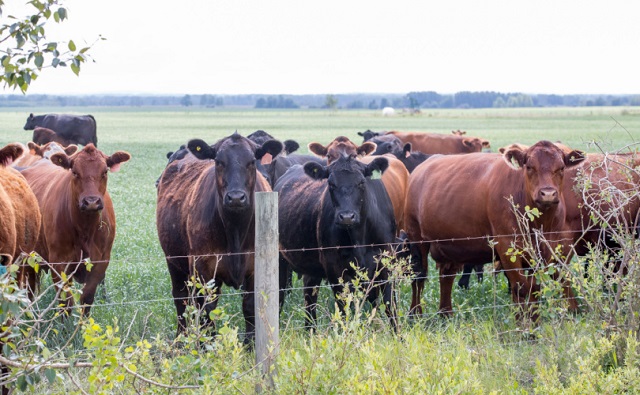
From the Brownstone Institute
By
In my previous two articles, we covered the global war on farmers and the culprits behind this agenda. Today, we will dive into the tactics these organizations use to foist their dystopian vision on the rest of us.
Perhaps you remember Event 201, the pandemic simulation run in late 2019 that served as a dress rehearsal for the 2020 Covid response. Such simulations have been used in the War on Food as well. Take, for example, the Food Chain Reaction Game, a 2015 wargame that simulated the time period from 2020 to 2030. Cargill and the other participants have removed the Food Chain Reaction Game data from their websites, but Cargill’s version was archived by independent researchers, so you can still see it here.
In the simulation, the decade brought “two major food crises, with prices approaching 400 percent of the long term average; a raft of climate-related extreme weather events; governments toppling in Pakistan and Ukraine; and famine and refugee crises in Bangladesh, Myanmar, Chad and Sudan.” When the game ended, its organizers had imposed meat taxes in Europe, capped CO2 emissions, and instituted a global carbon tax. The time period of the Food Chain Reaction Game handily coincides with the 2020 Covid crisis and ends with the culmination of Agenda 2030. If you don’t think those dates are significant, you aren’t paying attention.
The parties behind this simulation include the World Wildlife Fund, the Center for American Progress, the Center for Naval Analyses, and Cargill. Note the participation of US military and intelligence-linked organizations in this simulation, much as they appeared throughout the Covid power grab. Cargill, as I mentioned before, is one of the most powerful members of the global Big Ag cartel and have excelled in crushing independent farmers globally to establish total control of the food supply. The Center For American Progress is a Soros and Podesta-affiliated think tank.
The World Wildlife Fund has a shady Malthusian history dating to its eugenicist founders like Prince Bernhard of the Netherlands, co-founder of the Bilderberg Group; transhumanist Julian Huxley (brother of Brave New World author Aldous Huxley); and Britain’s Prince Philip, who said he wanted to be reincarnated “as a deadly virus, to contribute something to solving overpopulation.”
Note that the measures these conspirators concocted – meat taxes and a global carbon tax – have nothing to do with increasing the food supply to end famine – much as Event 201’s participants obsessed about vaccines and controlling misinformation rather than providing effective early treatment for disease. To state the obvious, neither simulation is really about solving hunger or viral contagion. They are designed to game out how to ram an agenda down the throats of an unwilling populace.
Both exercises are classic examples of Hegelian Dialectic, the problem-reaction-solution strategy whereby a problem is created or used to stimulate public demand for a solution. The solution always involves pre-planned actions or legislation that never would have passed public approval before the problem was created. To quote Rahm Emanuel, President Obama’s Chief of Staff, “Never let a serious crisis go to waste. By that I mean, it’s an opportunity to do things you think you could not do before.”
The goal of the Food Chain Reaction Game simulation and the global elites who share this vision is simple but devastating: the controlled demolition of the current food supply and supply chain network – not to end factory farming and replace it with regenerative, earth healing agriculture – but to replace it with a global, centralized, fully surveilled, and tightly controlled food system based on lab-created and industrially processed so-called foods, with little dietary choice and abysmal health outcomes for all but the elites, using climate change as the excuse for it all.
As Bertrand Russell predicted, diet will not be left to individuals, but will be such as the best biochemists recommend.
If you’re new to this topic, you may feel that statement is hyperbolic. It is hard to grasp that there are people planning something this far-reaching and diabolical – it’s as far-fetched as a network of global elites using a lab-escaped virus as an excuse to destroy the economies of the world and forcibly inject billions with experimental poisons. But it is reality, and as the quotes from Bertrand Russell and Monsanto’s CEO hint, this agenda has been in the works for decades.
In my next article, we will look at some of the publicly acknowledged projects that are in the pipeline for achieving this goal.
Agriculture
The Netherlands Reverses Host of Climate Policies
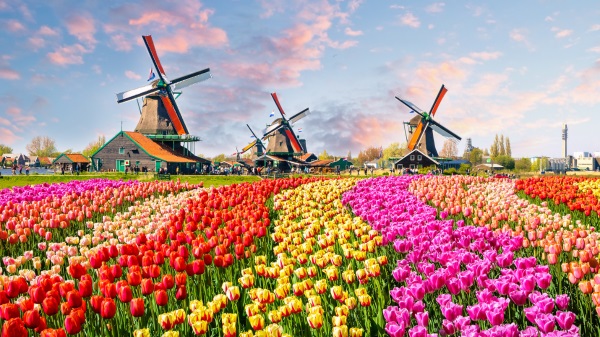
From Heartland Daily News
Agriculture-focused polices the new government is reversing include the previous government’s forced buyout and retirement of farms to cut fertilizer use and associated nitrogen emissions
The Netherlands recently elected a new right-of-center government which is downplaying climate alarm and European Union (EU)-driven climate policies that harm the country’s residents and agricultural producers.
“Geert Wilders, a prominent figure in Dutch politics, has led a coalition that marks a decisive shift in the Netherlands’ approach to climate policy. Wilders, often dubbed the “Dutch Trump,” formed a new government that includes the Farmer-Citizen Movement (BBB),” writes Charles Rotter at Watts Up With That. Rotter quotes a report in The Telegraph on the political right’s rise in the Netherlands and what it means for climate policy:
The Netherlands will tear up rules forcing homeowners to buy heat pumps as part of a war on net zero by Geert Wilders and the Dutch farmers’ party. Six months after his shock election victory, Mr. Wilders this week struck an agreement to usher in a Right-wing coalition government of four parties. “We are writing history,” he said as he announced the program for the new government.
Among the EU-endorsed climate policies Wilders’ coalition government is rescinding is the heat pump mandate, which would have forced homeowners to switch to expensive, inefficient hybrid heat pumps from traditional air conditioning and heating systems.
The EU had established a goal of installing a minimum of 10 million new heat pumps by 2027 as part of its 2050 net-zero ambition, a plan the previous Dutch government had endorsed and imposed. As The Telegraph reported, the Dutch government’s heat pump mandate was intended to drive “down Dutch household use of natural gas for heating, which is the largest source of its gas consumption, equivalent to about 30 percent in total.”
Commending the new coalition government’s reversal, Caroline van der Plas, leader of the BBB, cheerfully said, “Thanks to BBB’s efforts, the mandatory heat pump will be abolished.”
Agriculture-focused polices the new government is reversing include the previous government’s forced buyout and retirement of farms to cut fertilizer use and associated nitrogen emissions. In its place, the new government will establish a series of voluntary incentives to reduce emissions and offer interested farmers voluntary buyouts to end production.
Wilders government is also set to end subsidies for electric vehicles by 2025, which, as Rotter notes, is “a departure from the EU’s blanket approach to climate policy. These subsidies have been criticized for benefiting the wealthy who can afford electric vehicles while doing little to address broader environmental issues.”
-

 COVID-192 days ago
COVID-192 days agoFederal court rules COVID shots don’t stop transmission of virus, sides with anti-mandate lawsuit
-

 Red Deer1 day ago
Red Deer1 day agoRed Deer Symphony Orchestra invites you to the 2024-2025 season!
-
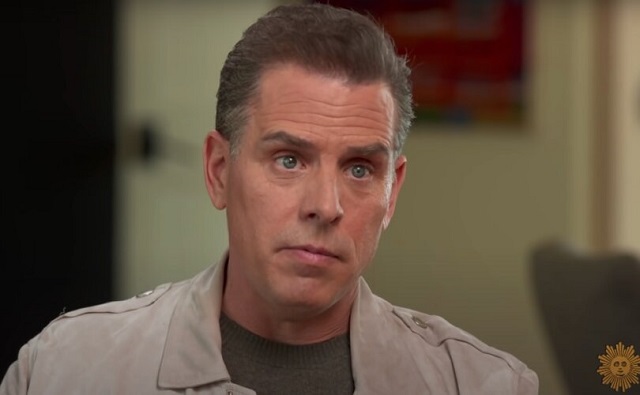
 Crime2 days ago
Crime2 days agoFBI admits identity of Hunter Biden laptop in Delaware trial after intelligence officials denied story in 2020
-

 Agriculture9 hours ago
Agriculture9 hours agoThe Netherlands Reverses Host of Climate Policies
-

 DEI8 hours ago
DEI8 hours agoSchool boards need leaders who focus on education not politics
-

 Bruce Dowbiggin12 hours ago
Bruce Dowbiggin12 hours agoReverse Discrimination: The Bullying Of Caitlin Clark
-

 Addictions1 day ago
Addictions1 day ago“Safer supply” reminiscent of the OxyContin crisis, warns addiction physician
-
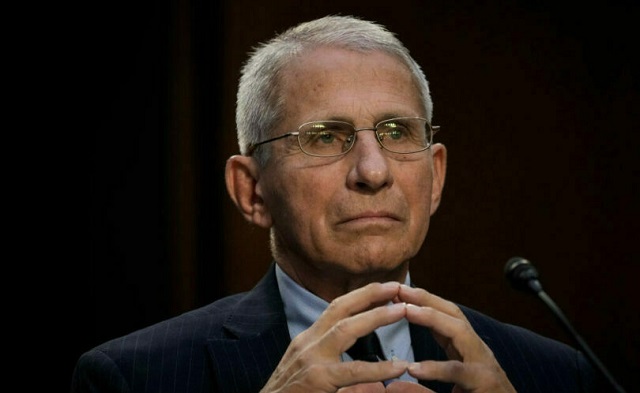
 COVID-191 day ago
COVID-191 day agoCivil liberties group demands Fauci preserve records with Big Tech for COVID collusion lawsuit


